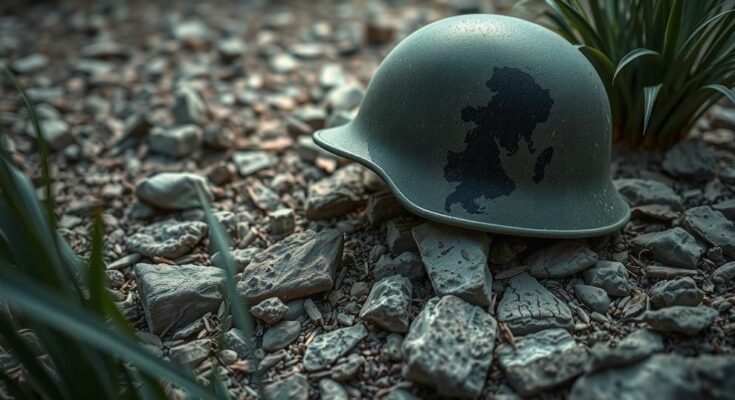Nine South African soldiers have been killed in eastern Congo amid rising tensions as Congolese forces confront Rwanda-backed rebels near Goma. The M23 insurgency has intensified, with significant territorial gains reported. The U.N. has begun relocating non-essential staff due to security concerns, while humanitarian needs have escalated amid widespread displacement. The situation remains precarious with potential for a regional conflict.
Nine South African soldiers have lost their lives amid escalating hostilities in eastern Congo, as reported by the South African defence department on January 25, 2024. The incident occurred as Congolese forces, alongside peacekeepers, engaged in combat with Rwanda-backed rebel groups striving to capture the city of Goma, home to over one million residents. The fighting coincided with heavy bombardments surrounding the area, highlighting the intense conflict.
The M23 rebel group, which has waged an insurgency in the mineral-rich eastern part of the Democratic Republic of Congo, has intensified its operations, seizing considerably more territory in January alone. The U.N. has issued warnings about the potential for an expanded regional armed conflict. Earlier reports noted that two South African members of the U.N. peacekeeping mission and seven others from a regional force had been killed during fierce battles.
The South African National Defence Force praised the fallen soldiers for their valiant efforts to halt the rebel advance towards Goma, asserting that the M23 was successfully repelled. This surge in violence has also claimed the life of North Kivu’s military governor, increasing concern over deteriorating security. Although calm returned to Goma with a notable police presence, the threat remains formidable.
In response to the escalating danger, the U.N. has begun relocating its non-essential personnel from Goma. Allegations persist regarding Rwanda’s military involvement in the conflict, with the European Union calling for an end to Rwanda’s support of the M23 rebel group and its withdrawal from the region. The Rwandan government has not issued a statement regarding these claims.
As the conflict deepens, humanitarian conditions have worsened in eastern Congo, with the U.N. refugee agency reporting 400,000 additional individuals displaced this year alone. Human Rights Watch has issued warnings about the increasingly perilous situation facing civilians in Goma, stating that humanitarian needs are vast and urgent. The U.N. Security Council is slated to convene on Monday to address the ongoing crisis.
The current conflict in eastern Congo traces its roots to deep-seated tensions involving rebel groups, the Congolese government, and foreign influences, particularly from Rwanda. The M23 group, which emerged from earlier conflicts in the region, has gained ground amid a backdrop of violence and instability. With vital mineral resources at stake, external interests compound the complexities of the conflict, while international scrutiny grows amid humanitarian concerns. This ongoing struggle poses significant threats not only to stability in the Democratic Republic of Congo but also to regional peace, making the situation a focal point for international diplomacy and humanitarian intervention. The recent rise in violence has devastating implications for local civilians, leading to substantial displacement and suffering.
The situation in eastern Congo remains critical following the deaths of nine South African soldiers amidst escalating conflicts. The M23 rebel group has intensified its territorial claims, prompting international alarm and humanitarian crises affecting hundreds of thousands. With the U.N. Security Council set to address the situation, the urgent need for a sustainable resolution is evident as regional tensions threaten broader instability.
Original Source: www.thehindu.com




